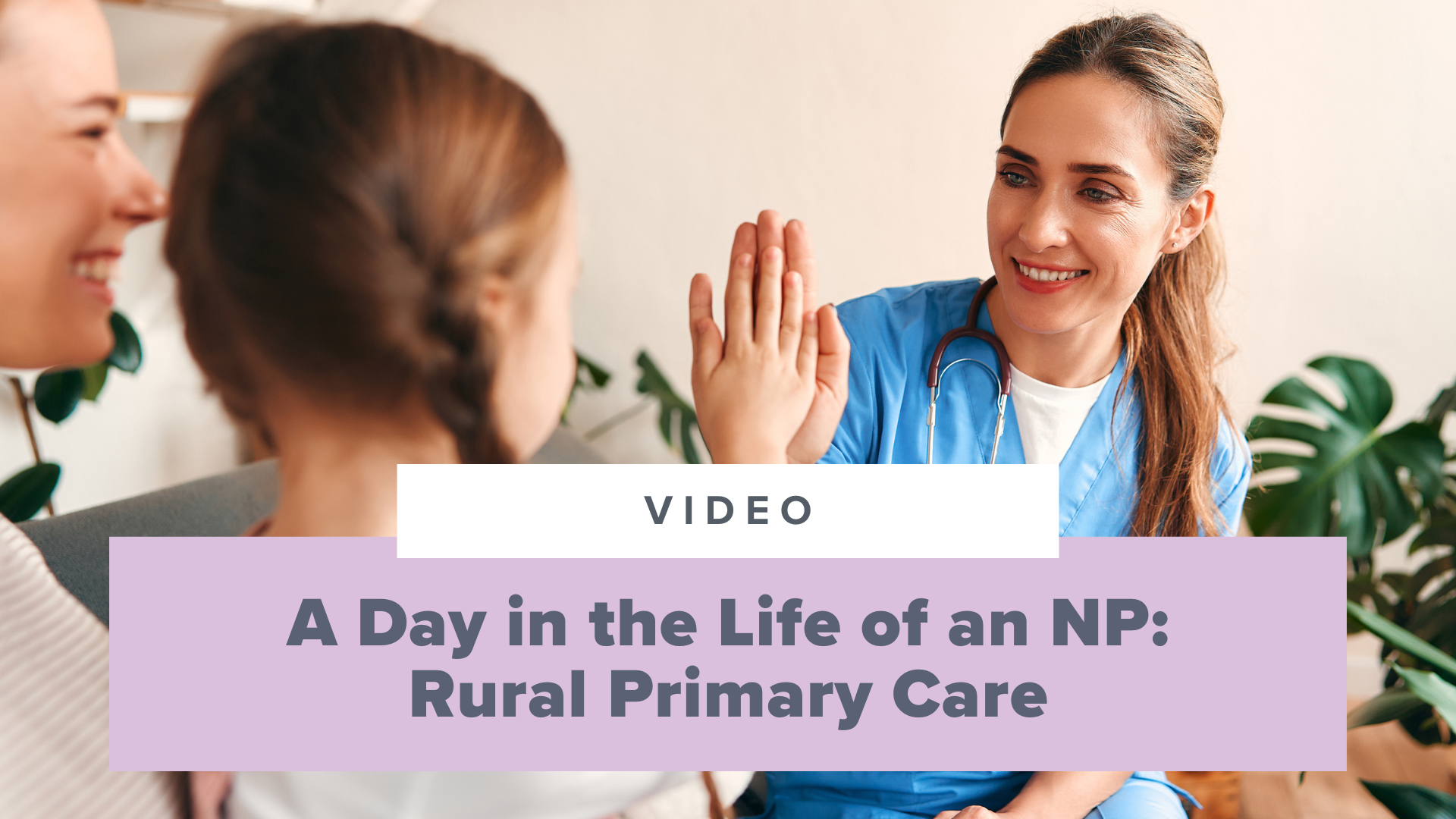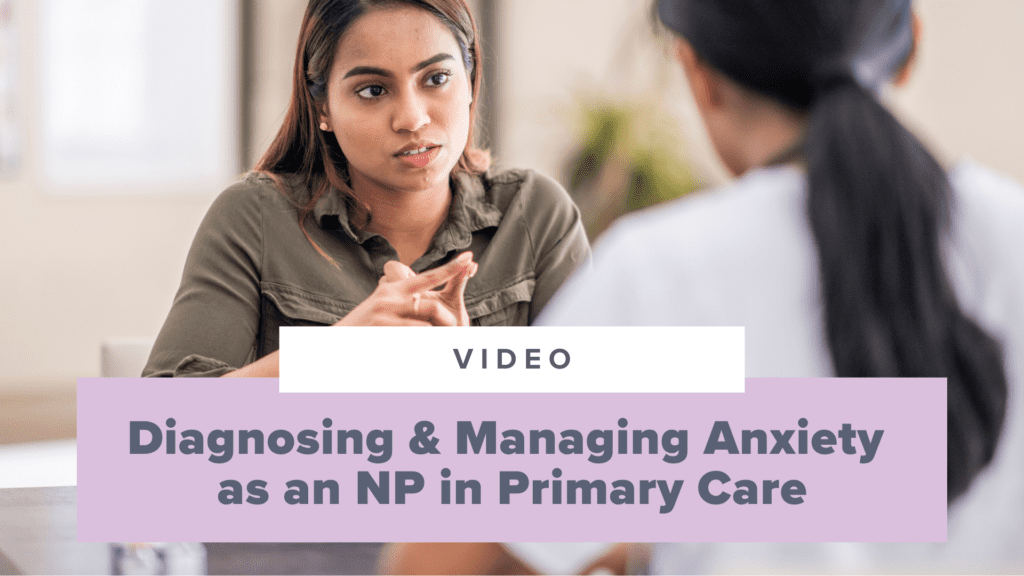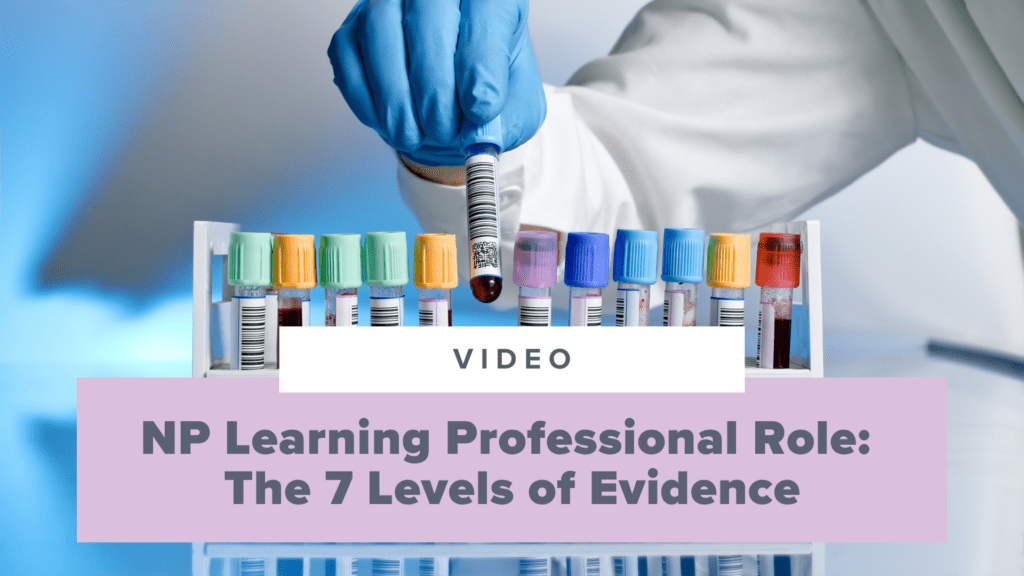A Day in the Life of a Nurse Practitioner: Rural Primary Care NP
- by
- Oct 16, 2024
- Videos

Maybe you’re thinking about being a rural primary care NP, but aren’t sure if it’s for you? Then you’ll want to check out this video by Ashton Glover, DNP, FNP-C, ENP-C:
In the video, Ashton talks about how she treats a whole range of conditions from hypertension to diabetes and mental health. Her motto in her practice (especially in rural communities) is “an ounce of prevention is worth a pound of cure.”
What does a rural primary care NP do?
Ashton says being a primary care NP means you need to know a lot about different body systems and disease processes, because you’ll see all kinds of patients. She treats patients across the lifespan, with both chronic and acute conditions.
You’ll learn that rural primary care NPs do lots of assessments, run diagnostic tests, interpret lab results, and develop treatment plans. Be ready to also perform wellness exams, coordinate patient care, and provide your patients with education when needed. As noted, prevention is worth a pound of cure, and a lot of that comes down to patient education.
Ashton also talks about how rural primary care NPs are part of a healthcare team, which includes physicians, the nursing staff, occupational therapists, pharmacies, home health, and hospice services. So you need to be a good team player!
What’s a typical day like for a rural primary care NP?
As for what a typical day looks like, Ashton says she starts work at 7:45 a.m., and begins by reviewing labs and answering messages from the previous day.
Then, she sees patients for most of the morning before breaking for lunch, when she usually grabs a quick bite to eat, finishes up some charts, and refills prescriptions.
After seeing more patients in the afternoon, she wraps up any additional chart work, and leaves the office around 5:30 p.m.
What are the pros and cons of the job?
Some of the things Ashton loves about her job include that she gets to take care of patients in her community, the clinical variety that comes with being a primary care NP, and the ability to manage complex conditions.
On the downside, she notes that being an NP in a rural area means she doesn’t always have access to things NPs in urban areas do, and that dealing with insurance companies can be frustrating!
How can you become a primary care NP?
Ashton says one of the most important things you can do if you want to become a primary care NP is to network! You just never know how you’ll land that first job. Also, once you get into the field, be sure to take advantage of every resource available to you. And remember—you’re part of a team, so be sure to build good relationships with your coworkers!
💜 Be sure to watch this video and subscribe to the SMNP YouTube channel, where you’ll find lots of great tips on how to get through NP school, crush your boards, and thrive as a real-deal NP!
And for more “day in the life” content, check out these other posts on the blog!
Search the Blog
Join our Facebook Group!
Get FREE support and encouragement from thousands of FNP/AGPCNP students and our NP Support team.
Learn More3 Study Hacks to Conquer Your NP Exam!
Download these tips that have helped thousands of students pass their NP board exams.
Download NowInstitutional Partnerships
Are you a faculty member and would like to bring Sarah Michelle’s resources to your school? Email us at nursinggroups@blueprintprep.com for special institutional pricing or click on the link below to learn more.
Learn MoreGroup Discounts
Are you a student and have 10 or more classmates interested in purchasing Sarah Michelle’s courses? Email us at nursinggroups@blueprintprep.com for special pricing.



